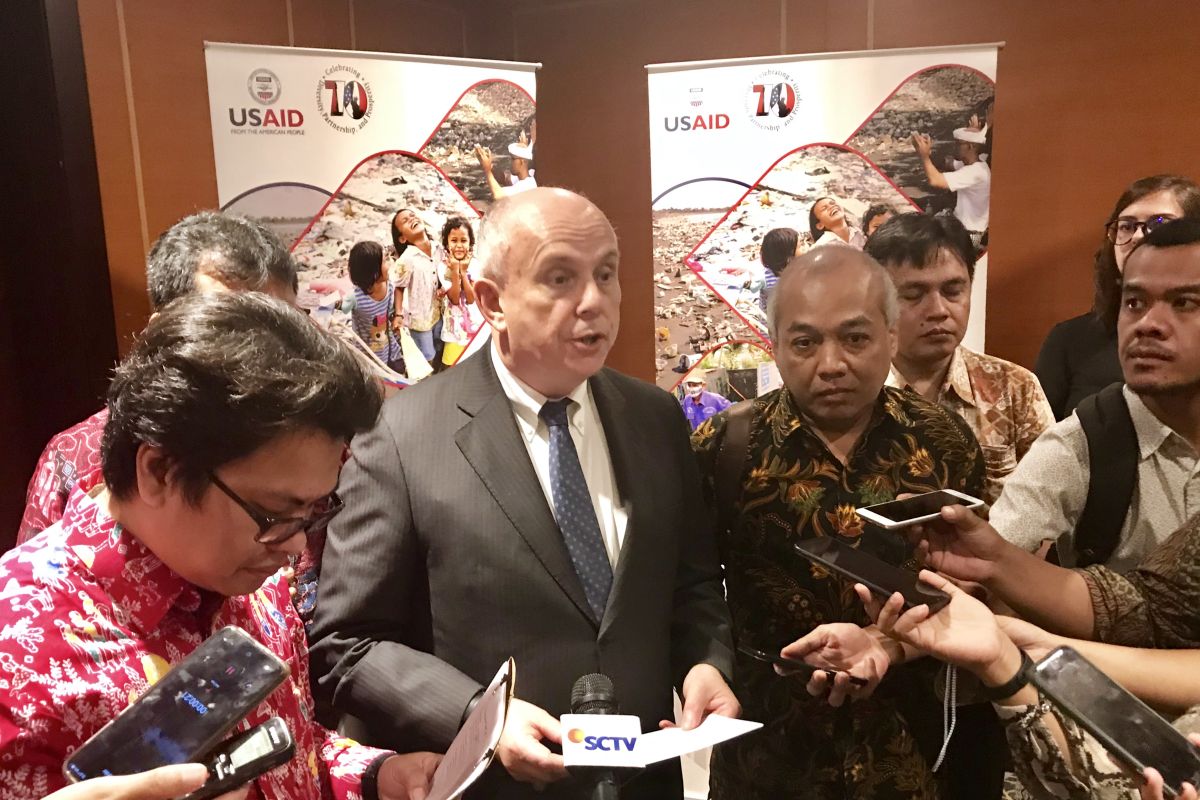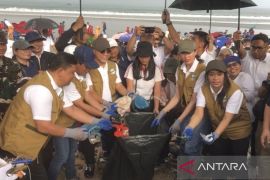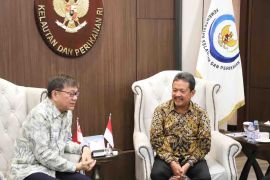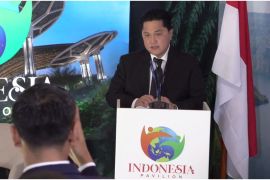"Every year, eight million tons of plastic waste is discarded into the world’s oceans with the potential to enter the human food supply through fish products,” the US embassy said in a statement posted on its official website, Sunday.
Since 2016, the United States Agency for International Development (USAID) Municipal Waste Recycling Program has awarded grants and technical assistance to promising organizations in Indonesia, the Philippines, Vietnam, and Sri Lanka working to reduce marine plastic pollution.
Tackling plastic waste pollution from source to sea has become the priority of the Government of Indonesia. “Aligned with the newly launched National Plan of Action for Marine Plastic Debris, the Government of Indonesia is committed to reducing marine plastic debris by 70 percent in 2025,” Said Dr. Adi during the signing event held in Jakarta, recently.
“Our fisheries, food security and tourism economy rely on a healthy ocean, which is why we set this ambitious target,” he added.
The Government of Indonesia also put a national target of reducing waste generation by 30 percent and to manage the remaining 70 percent to achieve the target 100 percent waste management in 2025.
“We have implemented the principles of 3R (reduce, reuse, recycle) and circular economy in our waste management policy and strategy,” said Dr. Tahar.
“While the challenge of ocean plastics is global, the solutions need to be local,” said Ambassador Donovan. “The U.S. Government, through USAID, promotes a local approach to reducing ocean plastics through grants to organizations pursuing innovative solutions for plastic waste challenge. This grant signing is an important milestone in our 70 years of diplomatic relations, which we celebrate in 2019. We are proud of this partnership and the prosperous, healthy futures it will help ensure for generations to come.”
The grant recipients, BINTARI Foundation in Semarang City, Misool Foundation in Sorong City, Gringgo Foundation in Denpasar City, Divers Clean Action in Seribu Islands, Transformasi Indonesia in Gowa, and Bioscience and Biotechnology Development Foundation in Bandung will work with communities, local governments, and private sector partners to explore more effective solutions in urban waste management.
BINTARI Foundation and Misool Foundation will strengthen the community bank sampah (waste bank) operating in Semarang and Sorong to scale up recycling capacity, connect community initiatives with small scale recyclers, and incentivize the collection of single-use plastic.
Divers Clean Action and Gringgo Indonesia Foundation will work with city solid waste management operators in Seribu Islands and Denpasar City to improve waste collection systems through improved community participation and an innovative mobile application that tracks household waste collection. Further, Transformasi Indonesia and Bioscience and Biotechnology Development Foundation will work in Bandung City in West Java Province, and Gowa in South Sulawesi to share and replicate successful waste management models.
Reporter: Fardah
Editor: Sri Haryati
Copyright © ANTARA 2019












